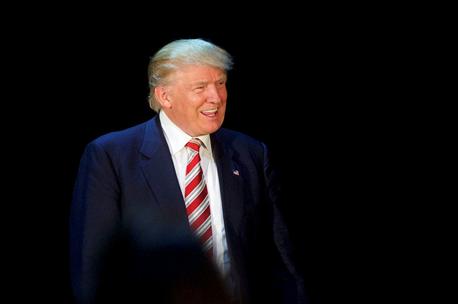
For once, the farm vote mattered.
Farmers, the working class and disgruntled Americans put Donald J. Trump in the White House. Our August Farm Futures poll put him ahead of Hillary Clinton by an overwhelming 73% to 10%. After years of unnderwhelming economic growth and an over-reaching progressive agenda, voters turned out in droves to paint the country bright red and bank on a controversial leader who promised to restart the U.S. economy.

The president-elect is "very sensitive to agriculture," says ag lawyer Gary Baise.
Now, as celebrities pack for Canada, it’s time to focus on how this president will impact the economy, including agriculture. Ag lawyer Gary Baise, who also writes the Defending Agriculture blog, helped put Trump’s Ag team together in the months before election. Last week he shared his thoughts on what’s next, with the caveat that these are his views, not those of the Trump team.
While a new farm bill may get much of the early spotlight, it’s other areas like regulation, trade and immigration reform that could have a bigger immediate impact. Trump energized farmers with his promise to get rid of over-reaching regulations. A case in point is WOTUS, the controversial Waters of the United States policy that endangers private property rights, rammed through by the U.S. EPA. In November a Congressional oversight committee reported on the “politicization” of WOTUS. Its report revealed how high level White House staff and the Chief of Staff were actually advising environmental groups about how EPA would finalize the WOTUS rule – public comments, property rights and science be damned. The report said EPA ignored input from the U.S. Army Corp of Engineering.
For years farm groups had tried to find common ground with President Obama’s crusading EPA. WOTUS would have been the feather in the cap for radical environmentalists and President Obama’s agenda. Now it is headed for the dust bin of poor policymaking. Trump also promised to appoint a ‘pro-agriculture’ EPA administrator.
Agriculture needs attention on other fronts, including an infrastructure fix for dilapidated lock and dam structures that move commodities up and down major rivers. Another area ripe for change: the Jones Act, an antique law that requires that all goods transported by water between U.S. ports be carried on U.S.-flagged ships constructed in the United States, owned by U.S. citizens, and crewed by U.S. citizens. That restriction adds costs to our exports.
Trump would also put teeth back in the Commerce Clause. The Trump administration will work with Congress to ensure that the CC is enforced to keep individual states from dictating policy for food growers in the United States. That’s a hot button issue as states like Vermont, California or Massachusetts try to set their own GMO or cage-free egg rules. Rules that may be fine with voters in one state could harm businesses in other states because goods flow freely across state lines.
“We cannot have states doing their own rules that hinder trade – that’s why we have the Commerce Clause,” says Baise.
Trade, immigration reform hot buttons
The big worries surrounding Trump’s impact on agriculture remain trade and immigration reform. Most of the people on Trump’s Ag committee say TPP (Trans Pacific Partnership) could be revived with some tweaks. Both the U.S. wine and beef industries get poor treatment in TPP. “It looks like with all our leverage we could have gotten a better deal, especially with Japan where they love our beef,” says Baise.
It’s unlikely that NAFTA (North American Free Trade Agreement) will be renegotiated in the first 100 days, either. But it’s on the table, and it’s been a big success for American farmers. Is Baise worried that Trump’s trade stance will harm U.S. Ag exports?
“I’m not worried about that at all,” he says. “He is very sensitive to agriculture.”
Trump’s Agricultural Advisory Committee is being chaired by Charles Herbster, a rancher from Nebraska whom Baise says has tremendous influence on Trump’s ag decisions. “Herbster realizes how important trade is for US agriculture,” Baise says. “They’re focused on what we can do to move these huge piles of grain.”
Likewise, while Candidate Trump railed over undocumented workers, president-elect Trump will likely take a more nuanced approach to immigration reform.
“He does understand that workers are needed in agriculture,” says Baise. “Migrant labor is needed –but those folks need to be here legally. This will still be a major political battle. We can’t allow this issue to destroy agriculture, which needs workers not just in fruits and vegetable industry but also dairy operations.”
Honeymoons last a short time in Washington. Give Trump time to do what he does best: make deals. If his teams can come up with sound plans and regulatory fixes, he should have awfully good support on the Republican side.
“I don’t think we’ve seen a guy like this,” says Baise. “This guy makes things happen. Is he ideologically a conservative like most Republicans? No. But does he want to solve problems? You bet.”
About the Author(s)
You May Also Like






